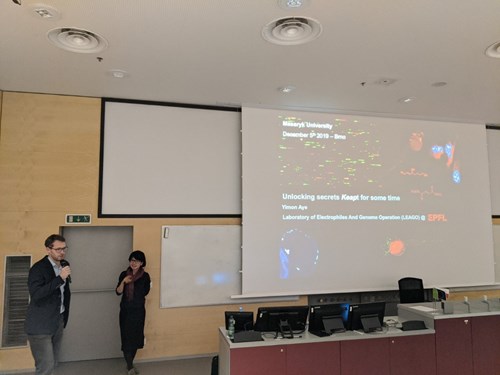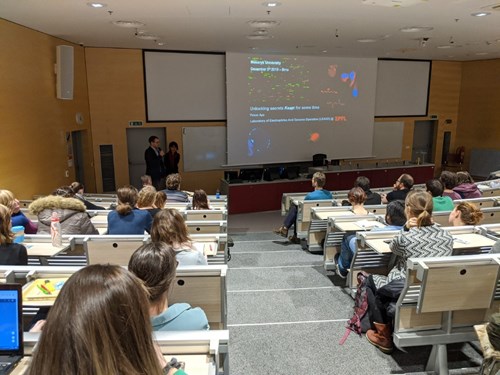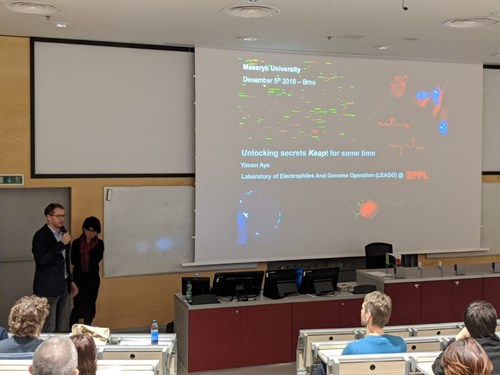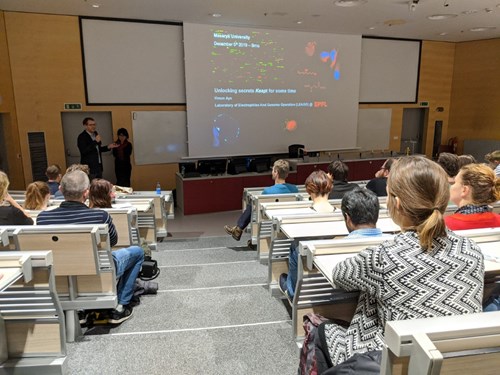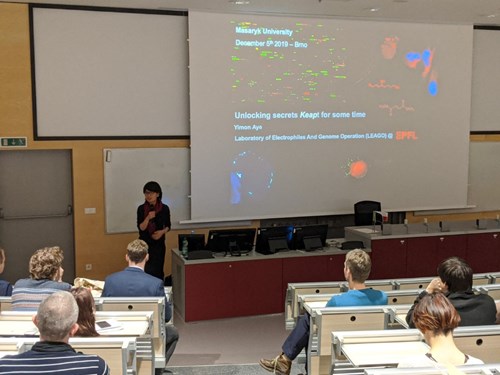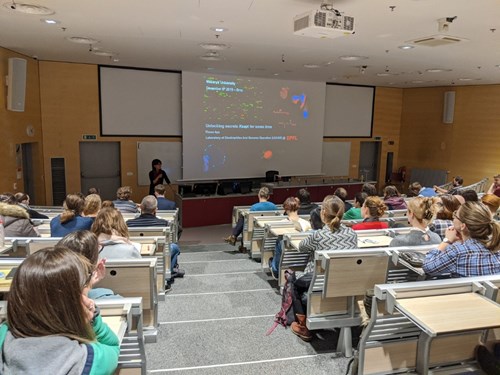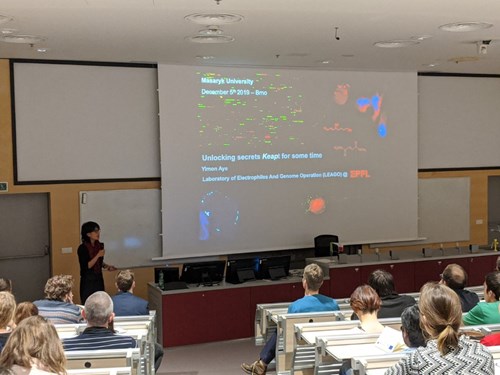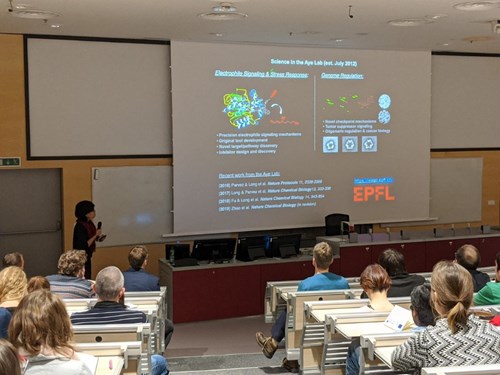Unlocking Secrets Keapt for Some Time
-
5 December 2019
4:00 PM - University Campus Bohunice (pavilion B11/ seminar room 132)
Speaker
Prof. Yimon Aye
Groupleader of Laboratory of Electrophile And Genome Operation (LEAGO), École polytechnique fédérale de Lausanne, France
"Our business is understanding cellular communication processes. We are most well-known for our studies into electrophile signalling, but we also study nucleotide signalling pathways. Our work is slowly bringing both eclectic forms of cellular communication into focus. Critically, we have proven that electrophile signalling impinges on all aspects of cellular processes, and we have uncovered hidden aspects of nucleotide signalling pathways that serve to guard the genome.
We pioneered the use of photocaged electrophiles (REX technologies) to bypass many of the limitations associated with the use of reactive electrophiles in cells/whole organisms. These technologies that can trigger protein specific electrophile-mediated signalling or can profile the best electrophile sensors are proving to be uniquely useful. We have also used biochemistry/cell biology/genetics to uncover novel roles of one of the most ancient enzymes, ribonucleotide reductase."
See more information at Prof. Aye´s research group website.
Hosted by
About the lecture
Most drugs have a characteristic protein target, critical for function. But an emerging class of drugs may instead have many important targets. The posterchild for this class is Tecfidera (dimethyl fumarate), a blockbuster multiple sclerosis drug. Manifold targets are postulated for Tecfidera, but due to technical restrictions it has proven difficult to assess ramifications of specific target engagement. Using Z-REX, which interrogates signaling events that occur upon protein-specific drug engagement in live zebrafish, we unravel the steps involved in Tecfidera’s immune cell-specific toxicity. Knockdown, or inhibition, of these players ablates Tecfidera’s efficacy. These data are essential for evaluating contraindications, and second-generation Tecfidera-analogs development.
Share event
